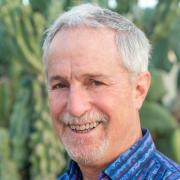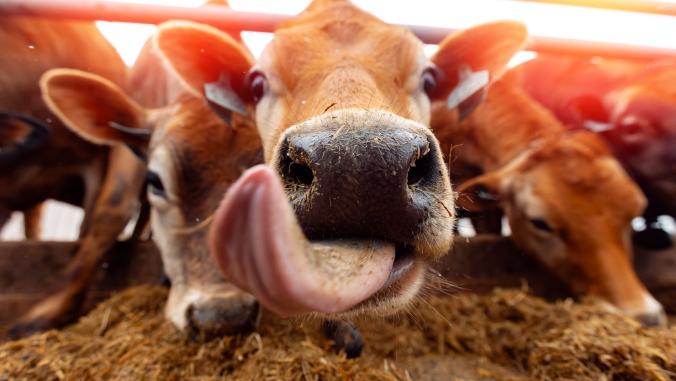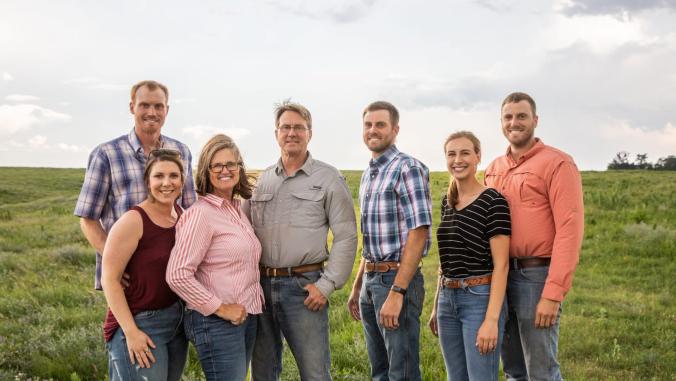Closed Loop launches Circulate Capital to take on ocean plastics in Asia
Closed Loop Partners today is announcing a new venture, Circulate Capital, to invest in companies, innovation and projects that prevent marine plastic waste originating in Asia.
Like its parent, which was founded in 2014 to invest in recycling infrastructure in order to put more recycled materials into manufacturing supply chains, Circulate will focus on financing companies and projects that accelerate waste management and recycling in emerging markets — in this case, in South and Southeast Asia.
The new venture will be led by Rob Kaplan, Closed Loop’s Co-Founder and Managing Director, who previously served as director of sustainability for Walmart and led corporate responsibility and brand strategy for wine and spirits maker Brown-Forman. The new venture will be based in Asia, though the exact domicile of the fund is still being worked out based on legal and regulatory considerations.
Tackling the recycling problem in Asia is no small feat. Up to 95 percent of plastic in the world's oceans pours in from just 10 rivers, according to research published late last year. Eight of those rivers are in Asia. (The other two, the Niger and the Nile, are in Africa.) The Yangtze River alone, Asia’s longest, topped the list, dumping up to an estimated 1.5 million metric tons of plastic waste a year into the Yellow Sea.
Much of the problem stems from the rapid development seen in Asia over the past 30 years, especially China’s burgeoning consumerist lifestyle, which has overwhelmed the nation’s waste management infrastructure.
But it’s not just China. Roughly 60 percent of all the plastic in global waters originates in five countries — China, the Philippines, Thailand, Indonesia and Vietnam, according to a 2016 study by McKinsey & Co.’s environmental business unit and the nonprofit Ocean Conservancy.
Exponential growth
The idea for the fund came from some of the same investors that helped create the original Closed Loop Fund — companies like Coca-Cola, Procter & Gamble, Unilever and Walmart — that were confronting significant roadblocks to sourcing recycled material in their far-flung supply chains. Closed Loop had focused on growing recycling in U.S. municipalities. Asia wasn’t part of its mandate until recently.
“The reality is that these countries have been exponentially growing in the last 10 to 15 years,” Kaplan explained to me recently. “Their consumption is exponential, and their waste production is exponential. That type of growth happened over 50 to 100 years in the United States and Europe. So, our investments in waste and recycling infrastructure and the policies and consumer behavior and awareness of those topics had time to evolve. In these markets, we have within the same generation people consuming different types of products and producing different types of packaging.”
The rise of public concern about ocean plastics, and the recognition of the scale of Asian countries’ contribution to the problem, also played a factor, leading Closed Loop Partners to partner with PepsiCo, 3M, Procter & Gamble, the American Chemistry Council and the World Plastics Council to launch a $150 million initiative last October called Closed Loop Ocean to focus on waste management and recycling solutions in Southeast Asia. The Ocean Conservancy became the project’s lead nonprofit partner.
Since then, Kaplan and his team have been working out the details for the new fund: the types of capital to raise, the structure of the fund, the geography to focus on, and so on. It’s at times overwhelming. “South and Southeast Asia is a big place,” Kaplan pointed out.
That strategy is now coming into view. “What we realized was in order to properly take this on, it was going to be very difficult to run it as a side project out of a U.S.-based firm,” said Kaplan, who has been named CEO of Circulate Capital. “We needed to devote the resources, the people, the talent and the attention in a very focused, discrete way, and it was going to be difficult to do that out of Closed Loop Partners, given all the commitments we already had.”
The fund came together quickly, he said. “When we created this project, we expected it to take several years to ramp up. But given the rate of change and the interest in ocean plastic, it's becoming an issue that everyone is very concerned about, so we decided to accelerate that project.”
Circulate is part of a growing drumbeat of activity related to ending plastic waste. In recent months, U.S. cities from Manhattan to Seattle have announced straw bans or phase-outs, along with companies like Starbucks, McDonalds and American Airlines, even the U.S. Capitol’s foodservice operations. UK Prime Minister Theresa May announced in April a proposal to ban plastic straws and other plastic items.
Meanwhile, U.N. Secretary General Antonio Guterres warned last year that unless steps are taken to curb the pollution, plastics could outweigh fish in the world’s oceans by 2050.
A new view
While environmental concerns about plastic waste have been around for decades, public concern has been stoked in recent years by social media, including viral videos, such as the graphic video of a sea turtle with a straw stuck in its nose, which has received more than 30 million views. A new generation of millennial consumers and their younger brothers and sisters are growing up with a new, less favorable view of plastics.
“The awareness of the issue has changed, and that's caused consumer engagement and consumer activism, which you don't see often in an environmental topic like climate change,” said Kaplan. “Governments are paying attention, too, so the awareness of the problem has skyrocketed, but awareness of the solutions has lagged. That's why we feel like it's important to accelerate and lean in on this topic as quickly as possible, because we need to start investing in those solutions.”
The solution set for recycling in developing countries isn’t necessarily the same as in developed ones, where trash trucks ply city streets for garbage and recycling bins, then unload their haul into centralized municipal recycling facilities, or MRFs.
In many developing economies, such as most Asian countries, there are informal waste collection systems, explains Ben R. Jordan, Senior Director of Environmental Policy for The Coca-Cola Company, which is an investor in Circulate, and which earlier this year announced “World Without Waste,” a global goal to help collect and recycle the equivalent of 100 percent of its packaging by 2030.
Some of those systems perform quite well, says Jordan, collecting up to 80 percent of beverage containers through informal scavenging systems. But it’s just a start. “There is a real opportunity from our standpoint to both formalize a little bit some of those informal systems, but also potentially include other plastics in those systems and reduce the leakage over there,” he told me.
According to Circulate, a 45 percent improvement in plastic leakage is possible by improving waste management and recycling in China, Indonesia, Vietnam and Thailand.
Of course, this is easier said than done. The complexities of investing in emerging markets is nontrivial, including labor issues, corruption and human rights concerns. Entrepreneurs don’t have access to banks and other cornerstones of starting and scaling a business that their counterparts in developing economies take for granted.
Moreover, there’s a lack of a track record investors can fall back on: People haven't been making money in this space as investors. There are few trusted investment partners in Asia who have deep experience in this space, another quality that make for a stable investment environment.
As a result, the risk to investors can be significant, says Kaplan. “In the U.S., investing or providing a loan to a municipality is probably one of the safest things you can do to support collection. In some of these markets, it's one of the more risky things you can do.”
Kaplan says he expects the fund to be up and running and making its first few investments by the first quarter of 2019, and that it will make a few more investments by the end of next year. The initial $150 million in capital will come from existing Closed Loop Fund investors, as well as some new members, such as Dow Chemical and Kimberly-Clark.
I asked Kaplan what we might expect from Circulate over the next couple of years. “In two years, what we'd like to be able to show is what types of interventions can work and scale to prevent plastic from being mismanaged, as well as waste in general being mismanaged, and directing it out of the environment and back into consumer goods and retail and plastic supply chains,” he said.
“At the same time,” he continued, “we want to be able to demonstrate this is an investable market that investors should be looking at and should be thinking about investing in, either directly with us or on their own.”
I asked Coke’s Ben Jordan the same question. He struck a similar theme: “In the next two to three years, I think it’s more about demonstrating what’s possible. We talk a lot about how to identify the investment opportunities that can be easily replicated. That’s a part of the world where a lot of innovation goes on. A real hope we have is that over the next two or three years, the investments that Circulate Capital makes are in technology and projects that are meaningful on their own as individual projects and initiatives but can be easily and quickly replicated across that part of the world.”
Susan Ruffo, who heads international initiatives at the Ocean Conservancy, which provides technical support to Circulate Capital, is quick to point out that the new $150 million fund is only a tiny fraction of what’s needed to solve Asia’s waste and recycling challenges.
“Our estimates are that it would take about $5 billion a year in just that region to solve the problem. So, we know that Circulate Capital alone can’t solve it with their investments.”
Even if Circulate and others can make a meaningful dent in Asia’s plastic waste problem, there are other burgeoning hotspots that will also need to be addressed.
“It’s sort of a moment in time,” explained Ruffo. “If you look at development trajectories, it’s not going to be too long before countries in Africa become big sources.”
Still, Rob Kaplan remains optimistic about the prospects for change.
“I feel like it's solvable,” he told me. “When you talk about many other environmental issues, there's a political divide that you have to overcome. In this case, we're all aligned. Nobody is for ocean plastic waste, right?”





